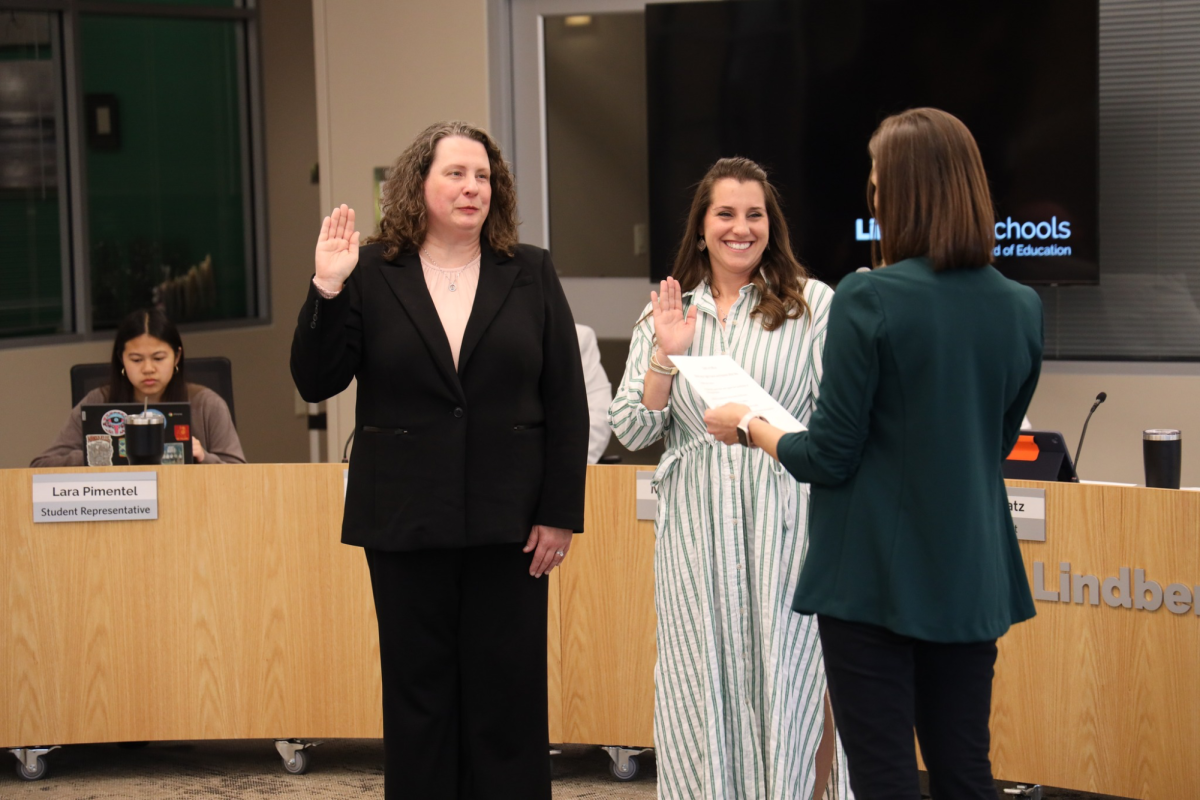With newly proposed rules for Crestwood’s civil-service employees on hold for further discussion, City Administrator Frank Myers hopes that aldermen will vote on those recommendations by March.
Myers said last week that aldermen might need “one more abbreviated work session” to refine certain sections of the newly proposed civil-service code. He anticipates that such a work session possibly could take place one hour before a Board of Aldermen meeting and that aldermen would vote on the proposals “certainly by their last meeting in March. No later than that.”
The Board of Aldermen next meets on Feb. 27.
During a Jan. 30 work session, aldermen agreed to further study a handful of new proposals in the civil-service code. These include a section that allows family members of city employees to run for elective office, a designation of the mayor and city administrator as city spokesmen, a rule that drops the monetary value at which employees must report gifts from $100 to $50, levels of employees’ compensation and vacation time and an alcohol/drug-testing policy for safety-sensitive employees. Aldermen have directed the Civil Service Board to study options of implementing an alcohol/drug-testing policy for not only safety-sensitive occupations, but all employees.
Aldermen also questioned the Civil Service Board’s duties — specifically its ability to make investigations on personnel matters and how much independence the board should have from the administration — at that Jan. 30 work session.
The 61-page proposed changes to the city’s civil-service code, which was last updated in 1996, was the product of 16 meetings during which the Civil Service Board met in 2006. Board members Catherine Barnes, Martha Duchild and Gretchen Hus-ton were appointed by Mayor Roy Robinson and began meeting in March 2006 as a Civil Service Board.
Regarding the new civil-service rules and regulations, Myers said the work of the Civil Service Board largely is finished and that any changes to the civil-service code would come from aldermen.
“The Civil Service Board has completed their review and made their recommendations,” Myers said. “Now it’s up to the Board of Aldermen to digest those recommendations and come up with a document that they can completely support. And there’s very possibly going to be some changes … some minor, possibly less than minor, changes.”
One section that possibly could be changed is the employee policy on reporting gifts and gratuities.
Chapter 2, Section 4 of the proposed civil-service code drops the value at which employees must report gifts from its current level of $100 to $50.
But board President Jerry Miguel of Ward 3 said at the Jan. 30 work session that he believes all gifts and gratuities — no matter what dollar value — should be reported to the city.
“I don’t care what the face value is,” Miguel said. “If somebody is taking somebody out consistently for lunch, I think that should be reported.”
“I do, too, but I think also that if you’re an employee of the Fire Department, there’s people bringing in cakes and pies and doughnuts,” Robinson replied. “They get stuff all the time. And there would be a real reporting deal to report every time.”
Myers said he believes the city would be logistically challenged to demand that employees provide notice of gratuities as small as “a free cup of coffee.”
He also cautioned that he does not want to create a civil-service rule that would put city employees in the situation where they are unknowingly violating city code.
“We have practices in this community where if a police officer goes into Schnucks after one in the morning, they’ll provide them with a brief snack,” Myers said. “There are restaurants that provide uniformed officers with discounts.
“What I don’t want to have happen is somebody unknowingly taking advantage of what the business community offers because they want that presence to be in violation of this and subject themselves to a problem. And the danger of being too constricted is these gratuities that are offered are offered primarily to uniformed police officers.
“We would set a policy telling uniformed officers: ‘You can’t take anything or you’re subject to discipline.’ Or because having a reporting requirement every time they go into a place of business and they’re offered a free cup of coffee, it’s problematical. And I’m just saying oftentimes they get the discount and they’ve just added that discount onto their bill.”
But Miguel maintained that all gifts and gratuities should be reported whether they are donated to an individual employee or a whole department.
“If Domino’s Pizza is dropping off five pizzas for lunch every other day, I think somebody ought to note that Domino’s Pizza is dropping off pizzas every Monday, Wednesday and Friday,” Miguel said.
“If it’s going to a group, the Fire Department received lunch for all employees on Wednesday,” he added.
Miguel and other aldermen also questioned whether the city can afford its proposed levels of employees’ carry-over time for compensation and vacation.
As proposed in the civil-service code, employees can carry over 60 hours — or 1.5 weeks — of unused compensatory time into the next calendar year and 160 hours — or four weeks — of unused vacation time into the following calendar year.
In response to concerns about whether the city can afford to offer that much carry-over, Myers said the administration believes these levels are affordable and that the city has some employees that are already well above those carry-over hours.
He anticipates that the city will have the limitation of a 60-hour annual carry-over of compensation time and a 160-hour annual carry-over of vacation time in place for all employees by mid-2008.
“We do have some employees that exceed policy,” Myers said. “We have not taken away their leave, even though it exceeds policy. But we’ve set benchmarks that that employee must meet over a two-year period to fall within policy. And we’ve been working on that since I’ve arrived here (in February 2006).
“We have in place, I understand, a use-it-or-lose-it policy. It has not been enforced, or it’s been selectively enforced. And we have, in certain departments, employees that far exceed the vacation hours that they’re supposed to have. When I became city administrator, as I sat down with you and discussed this, we had a number of employees that exceeded that policy. The decision was made by me. I discussed this with the mayor.
“Rather than just take employees who have large amounts of vacation time beyond the policy and say it’s gone, we set benchmarks. And I told the directors working with those employees: ‘Within a two-year period, you’ve got to fall within the policy.’ And they’ve been working to do that.”
Ward 4 Alderman Steve Nieder, however, said that while he understands Myers’ plan to set appropriate levels for carry-over hours, he questions whether it will be affordable.
“Why are we allowing them to carry that much (vacation) hours forward?” Nieder said. “That’s a huge liability also and in addition to the 60 hours of compensation time. You add the two together and that adds up to quite a bit of financial liability that we need to be concerned about. That’s my only concern. That’s sitting there in a bank. We have to pay for it eventually.”
“You’re absolutely right,” Myers replied. “I think, though, to expect the employee to use every last day of their vacation, it’s not uncommon at all in municipal government to have some minimal amount of vacation carry-over.”



















